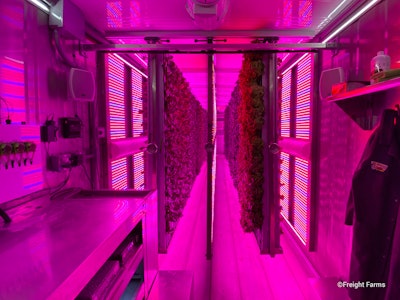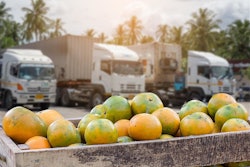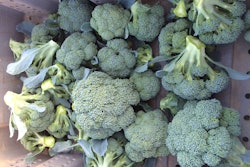
Freight Farms, the pioneer and global leader of hydroponic vertical container farming, and Arcadia, a monthly subscription service that connects renters and homeowners across the U.S. to clean energy, have partnered to provide Freight Farms’ U.S. customers with access to clean energy for their everyday operations. With this partnership, Freight Farms and Arcadia are taking the first critical stride to align their respective industries, moving indoor farming into a more sustainable future.
Benefits of indoor farming, including chemical-free food production unrestricted by seasonality, climate change, and water scarcity have been recognized globally, attracting investment and driving rapid industry growth. While it has made significant advancements in resource efficiency, the industry has continued to struggle with the sustainability of electrical power use.
Together, Freight Farms and Arcadia are taking an important step toward addressing this limitation by connecting Freight Farmers to affordable clean power at a time when the nation’s grid is dominated by fossil fuel. With an Arcadia membership, Freight Farmers can choose to match their electrical use with wind and solar energy, which will also help create more demand for clean energy providers overall.
“Our farmers are passionate about sustainability by nature of their efforts to grow healthy food hyper-locally, but many are unable to adopt clean energy directly based on cost and availability of options in their location,” said Rick Vanzura, Freight Farms’ CEO. “With Arcadia, our farmers are able to further reduce their business’ carbon footprint while simultaneously increasing demand for more clean energy in the market, all without disrupting the daily flow of their businesses.”
"Arcadia was built so that anyone anywhere can use our platform to access clean energy," added Alexa Minerva, Senior Director of Partnerships at Arcadia. "We're excited about partnering with Freight Farms to make it possible for farmers to reap the benefits of renewables, potentially save money, and combat the effects of climate change."
Freight Farms’ modular container model makes this partnership uniquely possible within the indoor farming industry, as large agricultural enterprises use too much energy for community solar projects, which are capped at a relatively small size by state law.
Connecting to clean energy
Without changing anything in their day-to-day farm operations, Freight Farms’ customers can now connect their utility through Arcadia in two minutes. Upon connection, Arcadia will immediately begin matching 100% of the Freight Farm’s electricity by purchasing an equivalent amount of wind and solar energy in the form of Renewable Energy Certificates (RECs). The result reduces Freight Farmers’ carbon footprint to one-quarter of industrial farming operations. Based on location and other factors, Arcadia can even help farmers save on their electricity bills, providing both a competitive and financial advantage to using clean energy for their business.
Continued innovation in sustainability
The partnership with Arcadia is the latest initiative in Freight Farms’ long history as an indoor farming industry leader. Freight Farms’ Greenery has been on the forefront of technological advances driving greater sustainability within the sector. The Greenery uses 98.9% less water than industrial farming– even achieving water-positive operations in certain locations. The Greenery's proprietary fixed lighting arrays also leverage the latest LED market technology to triple light energy output without an increased corresponding energy draw. The result is a growing platform that pairs the highest potential yields with the greatest resource efficiency.
Freight Farms’ pioneering modular design enables hyper-local farming anywhere, including harsh climates and urban areas lacking land access, reducing food production carbon impact in other ways as well. Transportation missions are drastically reduced or eliminated, and irrigation is no longer necessary. Hyper-local farming also reduces food waste by providing consumers just-picked produce with optimal freshness, flavor and shelf life.















